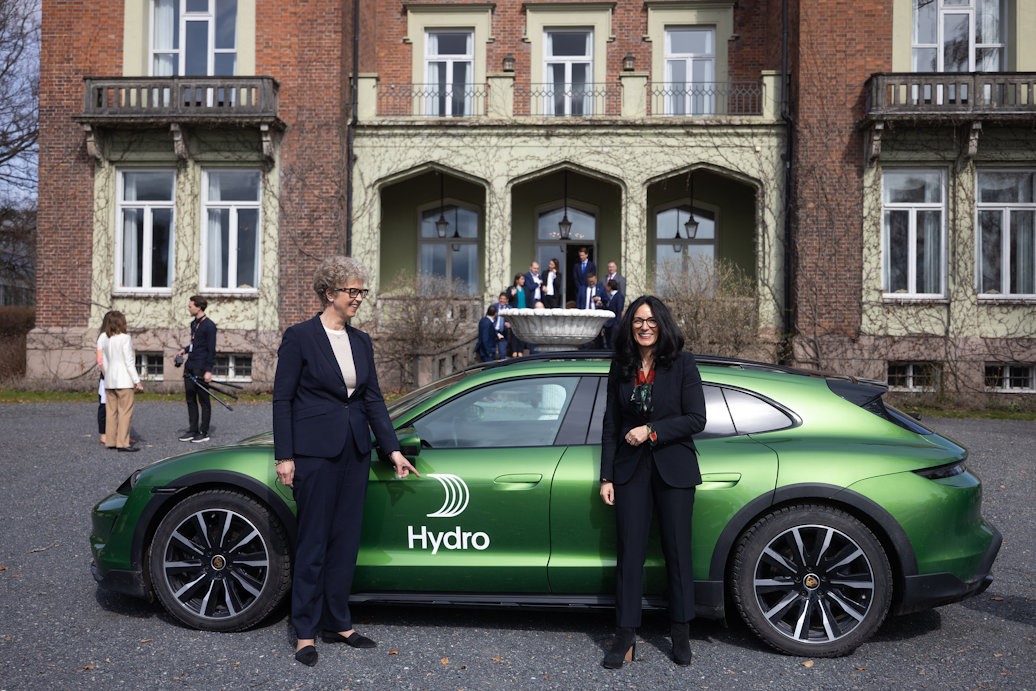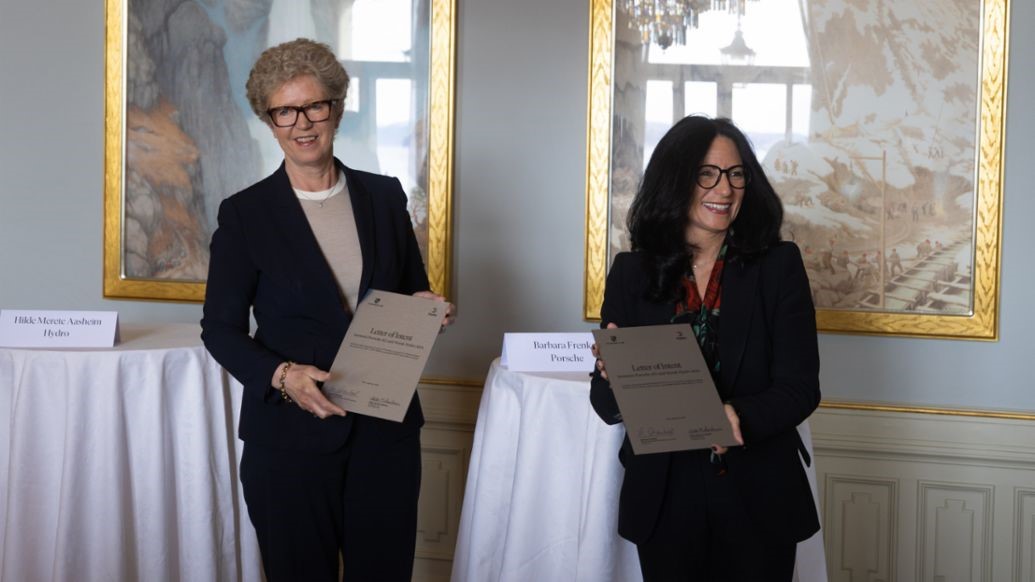

Porsche AG and Norsk Hydro ASA will collaborate to further lower the carbon footprint of Porsche's vehicle models by using Hydro's low-carbon aluminium and extrusions. Porsche will be able to reduce the footprint of aluminium in future vehicle projects by around 3.5 kilograms of CO2 per kilogram aluminium by 2025. This is around 60 per cent less than Europe's current primary aluminium consumption.

Aluminium's use in Porsche vehicles has continuously increased because of its exceptional features in pliability, low weight, and strength. Aluminium is critical in converting an electric vehicle into a sports car. Aluminium accounts for almost 30% of the overall weight of the Porsche Taycan, the brand's first entirely electric sports vehicle.
"Porsche is working towards a net carbon-neutral value chain of our vehicles in 2030. Aluminium and materials for battery production play a key role in our sustainability strategy. With Hydro's aluminium we aim to substantially reduce CO2 emissions deriving from this important material," said Barbara Frenkel, Executive Board Member for Procurement at Porsche AG.

Hydro hopes to provide Porsche and Porsche's component suppliers with aluminium in 2030 as part of both businesses' ambitious decarbonisation goals. Hydro will do this by expanding the usage of renewable energy in aluminium manufacturing and recycling post-consumer trash to boost circularity and minimise the carbon footprint of the aluminium produced.
"To reduce global warming, we need to decarbonise energy systems, produce for circularity and recycle resources already in use. Aluminium is a key enabler in the green transition, but supply chains must become emission free. The industry needs to partner up to make this happen and we are pleased to be able to work with a pioneer like Porsche in our common task to create a nearly carbon-free car," mentioned Hilde Merete Aasheim, President and CEO of Hydro.
Another critical component of the two firms' cooperation will be the proof of concept for developing a sustainable battery value chain in Europe. Porsche and Hydro will work together to create a roadmap for recycling battery materials throughout Europe. One of the most important aspects of this research will be how to develop efficient closed-loop solutions for Porsche's EV batteries.
The European supply chain for materials, critical for battery manufacture, is still in its infancy. Recycling will likely play a critical role in addressing the future demand for car batteries. To succeed, collaborations beyond conventional sectors will be necessary. Porsche and Hydro are eager to explore prospects for collaborative contributions in this sector. Both firms anticipate the first feasibility findings of combined battery recycling will be available in 2025.



Responses






